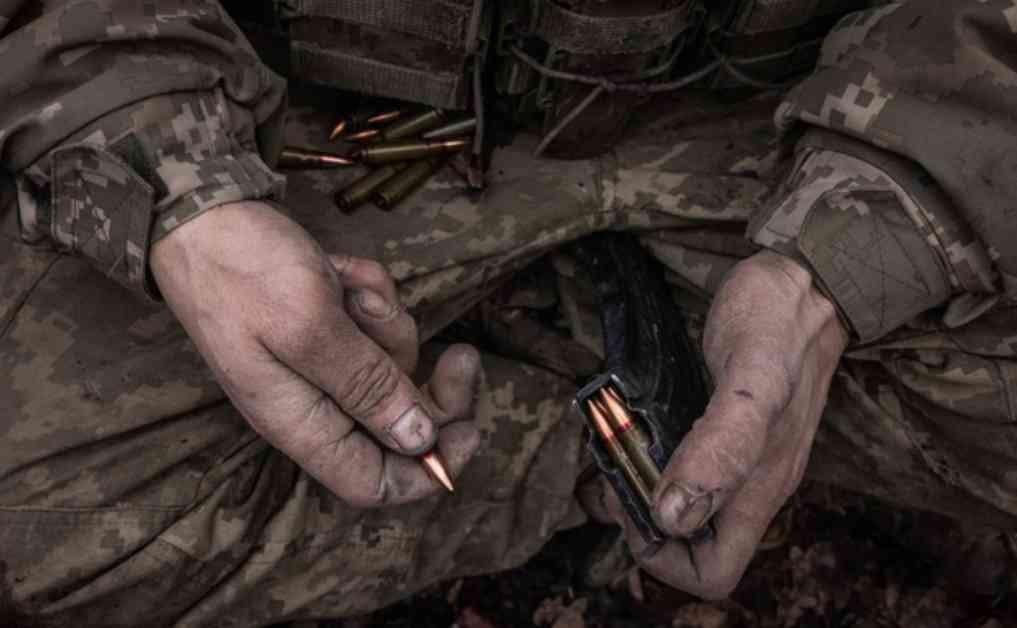Bulgaria’s Hidden Treasure Trove: Military Aid Windfall from Ukraine War
Bulgaria finds itself in an unexpected position of financial gain amidst the turmoil of the Ukraine conflict, standing to profit approximately €500 million from military aid provided to Kyiv over the past three years. This windfall comes as a result of generous compensation agreements with Kyiv’s major donors, breathing new life into Bulgaria’s economy and defense sector.
Behind the Scenes: The Military Exchange
In a strategic move to bolster its economy and military capabilities, Bulgaria has been actively involved in sending military aid to Ukraine. Through a series of contracts and agreements, Bulgaria has managed to secure €174 million from Denmark, with additional expectations of receiving at least €300 million from the United States and the European Commission in return for sending state-owned military equipment to Ukraine. This influx of funds has a twofold benefit for Bulgaria, assisting in reducing the country’s budget deficit while also providing the means to invest in modern Western weaponry.
Defense Minister Atanas Zapryanov aptly summarized the situation, stating that by aiding Ukraine, Bulgaria is essentially aiding itself. This symbiotic relationship not only allows Bulgaria to divest itself of outdated Soviet-era military equipment but also opens up opportunities for technological advancement through the acquisition of new Western weapons. As Bulgaria continues to send packages of military aid to Ukraine, focusing on ammunition, armored vehicles, and crucial air defense missiles, the country is paving the way for a strategic shift in its defense capabilities.
The Economic Impact: Unveiling Bulgaria’s Arms Industry
Bulgaria’s role as a significant owner and producer of Soviet-style military equipment has come to the forefront during the recent surge in military aid to Ukraine. With the delivery of 150 armored vehicles and Gvozdika self-propelled howitzers in 2024 alone, Bulgaria has solidified its position as a key supplier to the Ukrainian army. Despite ongoing efforts to transition towards NATO-standard ammunition production, a substantial portion of Bulgaria’s military industry continues to churn out Soviet-style weapons, which have found a lucrative market in Ukraine, Asia, Africa, and the Middle East.
Data from 2023 reveals that Bulgaria’s military factories and arms dealers boast an impressive turnover of €3.2 billion, firmly establishing the country as a medium-sized arms exporter on the global stage. While this influx of revenue has undoubtedly provided a financial boost for Bulgaria, it has sparked resistance from pro-Russian factions within the country. President Rumen Radev, the Bulgarian Socialist Party, and the pro-Kremlin party Vazrazhdane have vehemently opposed Bulgaria’s involvement in providing military aid to Ukraine, citing concerns over selling off outdated weaponry.
As the debate rages on within Bulgaria regarding the ethics and implications of military aid to Ukraine, the country finds itself at a crossroads between economic gain and geopolitical tensions. The delicate balance between profit and principles underscores the complex interplay of interests at play in the realm of international relations, leaving Bulgaria with a moral and strategic conundrum to navigate.
Euractiv, a prominent European news website dedicated to EU policies, sheds light on the intricacies of Bulgaria’s military aid windfall, offering a nuanced perspective on the economic and political implications of this unexpected turn of events. As Bulgaria grapples with the consequences of its role in the Ukraine conflict, the world watches with bated breath, awaiting the next chapter in this unfolding saga of diplomacy, defense, and dollars.

















